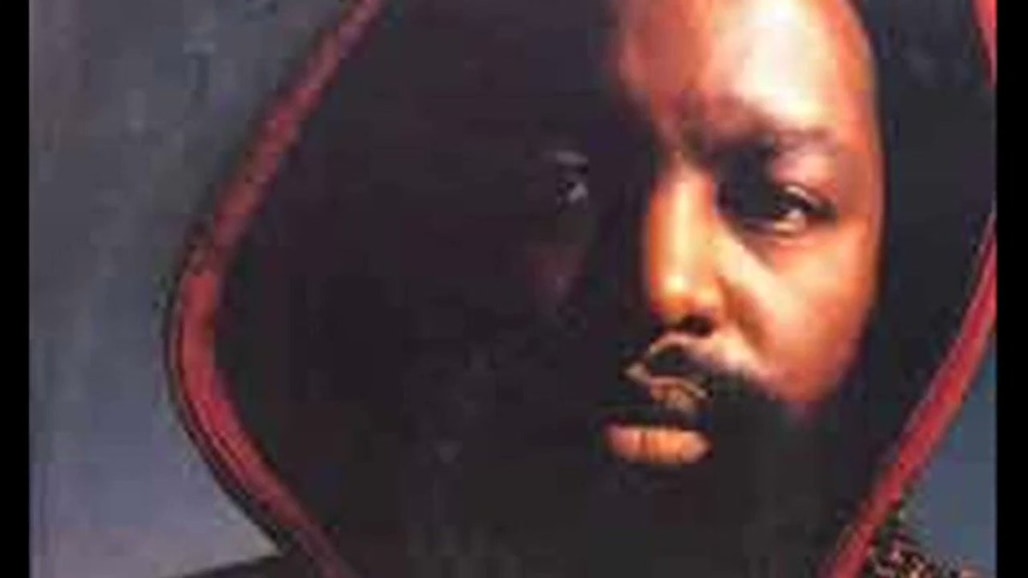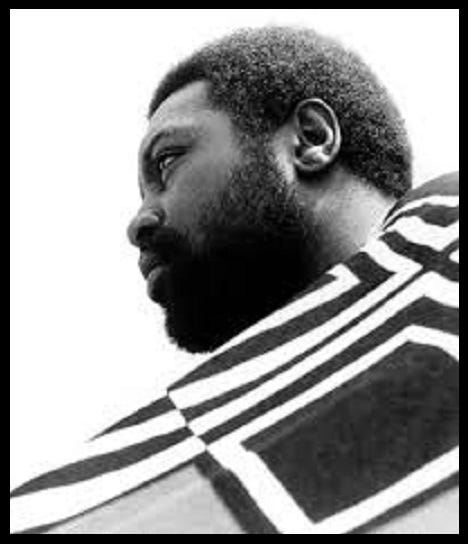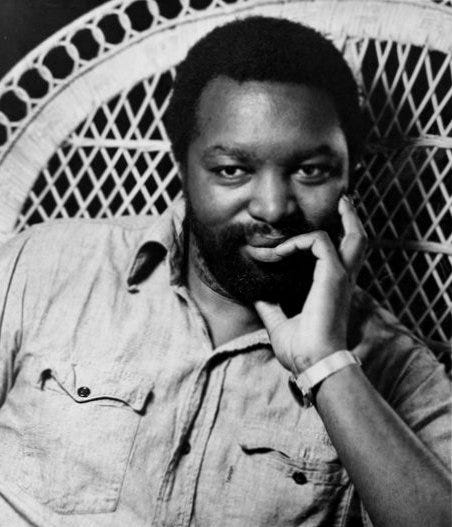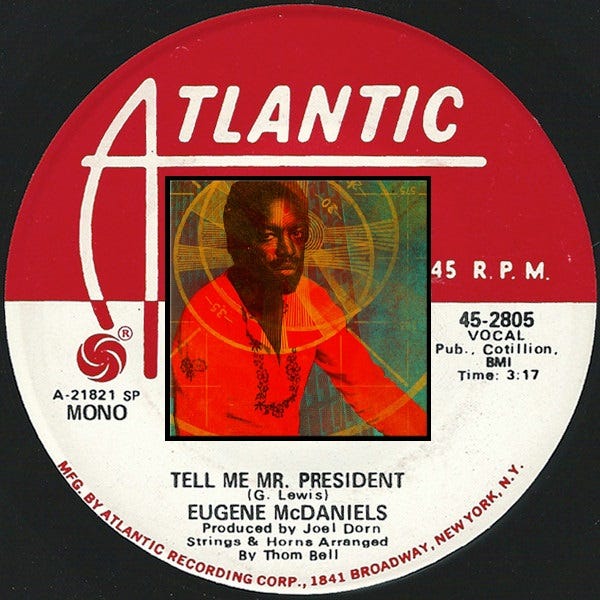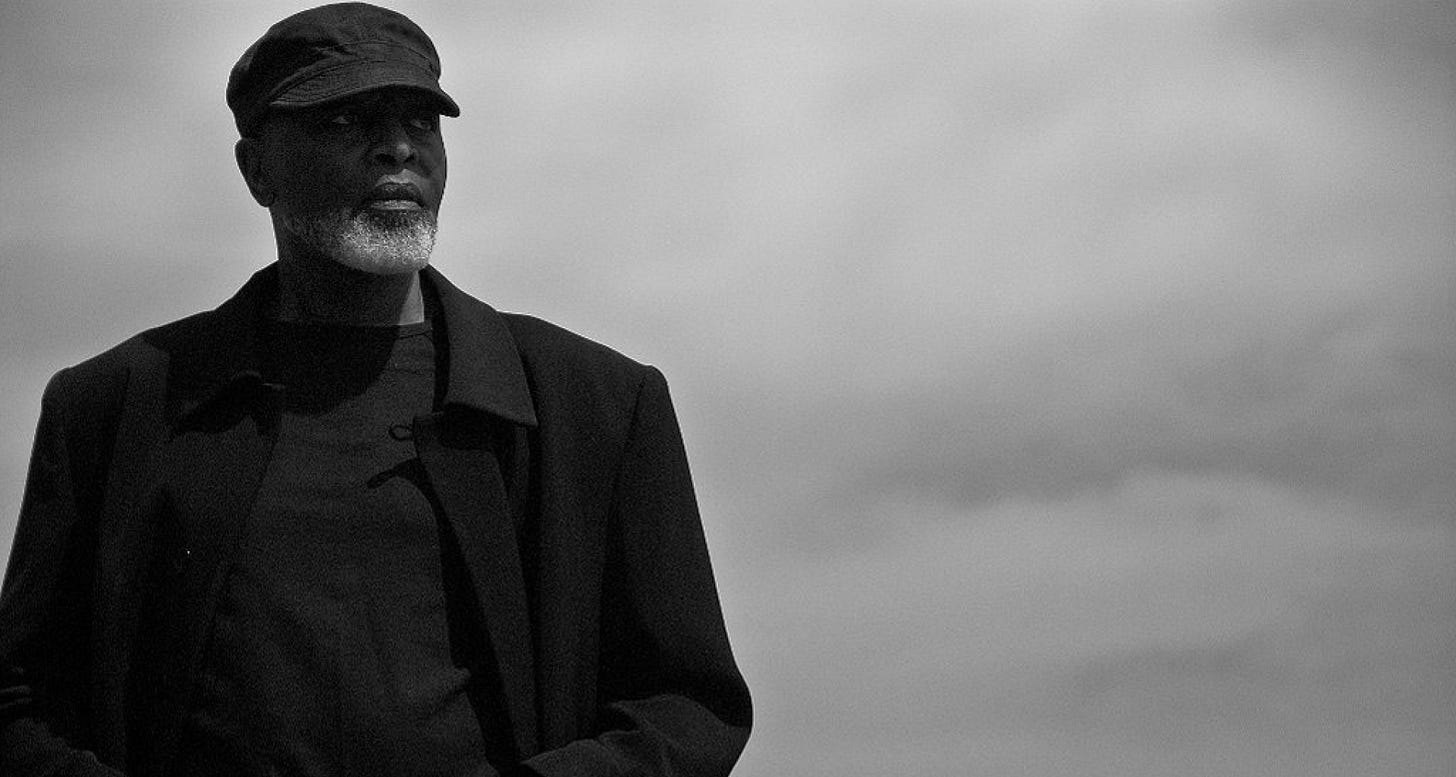Eugene McDaniels (February 12, 1935 – July 29, 2011) – Tell Me Mr. President (1971)
This truth-to-power anthem by McDaniels with strings and horns arranged by Thom Bell was a censored single from Headless Heroes Of The Apocalypse.

Watch full video on Substack or YouTube.
Singer/songwriter Eugene McDaniels had two big hits of his own in the early sixties, then wrote classics for artists including Roberta Flack, Les McCann and Eddie Harris, and Nancy Wilson. In the early seventies he released the cult albums Outlaw and Headless Heroes Of The Apocalypse, the latter of which was singled out for its politically radical lyrics and suppressed by the Nixon Administration.
Eugene Booker McDaniels got his start singing with the Les McCann Trio in the late 1950s. Billed as Gene Daniels, he signed with Liberty Records and in 1961 saw two of his singles reach the top-five on Billboard’s Hot 100. "A Hundred Pounds of Clay" became a #3 hit early that year, and "Tower of Strength," co-written by Burt Bacharach, was released in the fall and made it to #5. Both records went gold.
After Martin Luther King Jr.’s assassination, McDaniels left the U.S. to live in Denmark and Sweden. He continued writing songs, and penned the future jazz standard “Compared To What” for Roberta Flack’s debut LP First Take (1969). Les McCann and Eddie Harris made their version famous after performing it at that year’s Montreux Jazz Festival in June, 1969 and it has since been covered by more than 270 artists.
McDaniels also wrote “Feel Like Makin’ Love,” Roberta Flack’s #1 hit in 1974 and subsequently the title track to her 1975 album, and the exquisitely beautiful “Tree Of Life” (1976) for Nancy Wilson, a poetic reflection on life and death.
In 1970, he released his Outlaw LP on Atlantic, with cover art depicting him in a cemetery with two women armed with machine guns. The back cover laid down a challenge to the record-buying public:
“Under conditions of national emergency, like now, there are only two kinds of people - those who work for freedom and those who do not… the good guys vs. the bad guys.”
It got noticed by the Nixon Administration. When his follow-up album Headless Heroes Of The Apocalypse was still in the promotional stage, some accounts claim President Nixon and some of his advisors listened to the record on reel-to-reel tape in the Oval Office along with a transcript of the lyrics. The title track Headless Heroes was particularly incendiary, with its insightful analysis of the global power structure:
“Industry and war machines...these are the kings in the master game...the player who controls the board and the kings are the same...we are the cannon fodder.”
Soon afterwards, Vice President Spiro Agnew called Ahmet Ertegun, the head of Atlantic Records, and demanded it be withdrawn.
McDaniels explained what happened next in an interview with Wax Poetics in 2003:
“I got called in. Nesuhi or Ahmet, I can’t remember which, called me in and said, ‘What’s going on? What are you doing? You’re drawing undue attention to my label. What are you trying to prove?’ Now that’s a paraphrase. That is not the words that were said. Because it’s been too long ago, I can’t remember exactly what was said. But I can remember the feeling of what was said. They seemed frightened by it. They said it came from the White House.”
Atlantic caved to the pressure, promotional efforts ceased, and the record went nowhere.
The brilliant truth-to-power anthem “Tell Me Mr. President” (1971) was supposed to be a non-LP single from Headless Heroes, with the album's opening cut “The Lord Is Back” on the B-side. It featured strings and horns arranged by Thom Bell.
But promo copies were the only ones pressed, keeping the song away from impressionable listeners’ ears and minds.
The rise of hip hop rescued McDaniels’ radical masterpieces from obscurity. Cuts from Headless Heroes and Outlaw were both destined to be sampled in classic tracks by groups including A Tribe Called Quest, the Beatnuts, and the Beastie Boys.
In later years, he lived as a self-described “hermit” in a small town in Maine. He discussed his career and the legacy of “Compared To What” in an eloquent videotaped interview in 2010.
Eugene McDaniels died peacefully at home in Kittery Point, Maine on July 29, 2011.
#soul #HeadlessHeroes #ThomBell #EugeneMcDaniels


